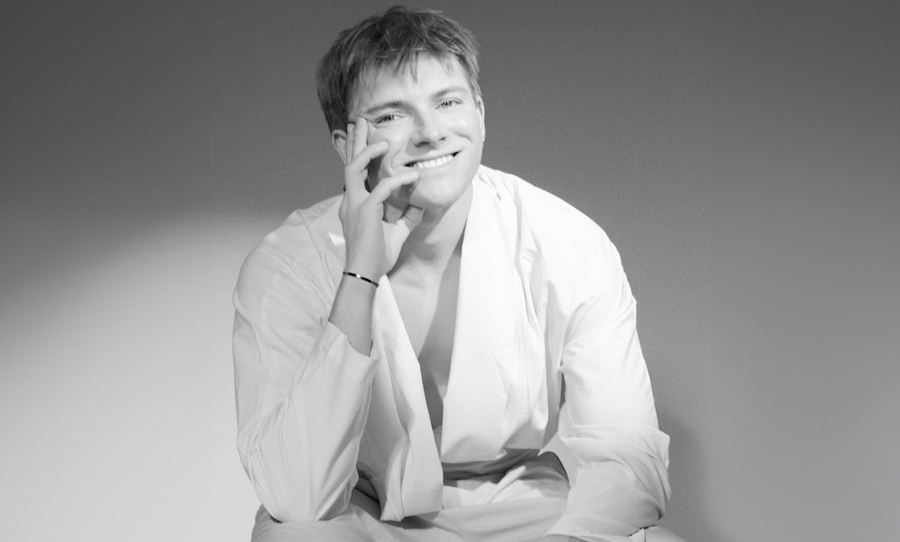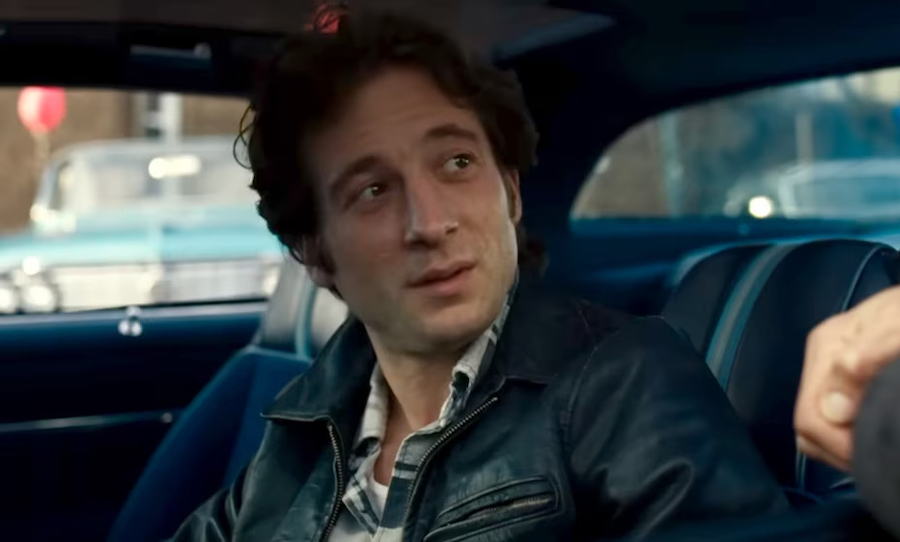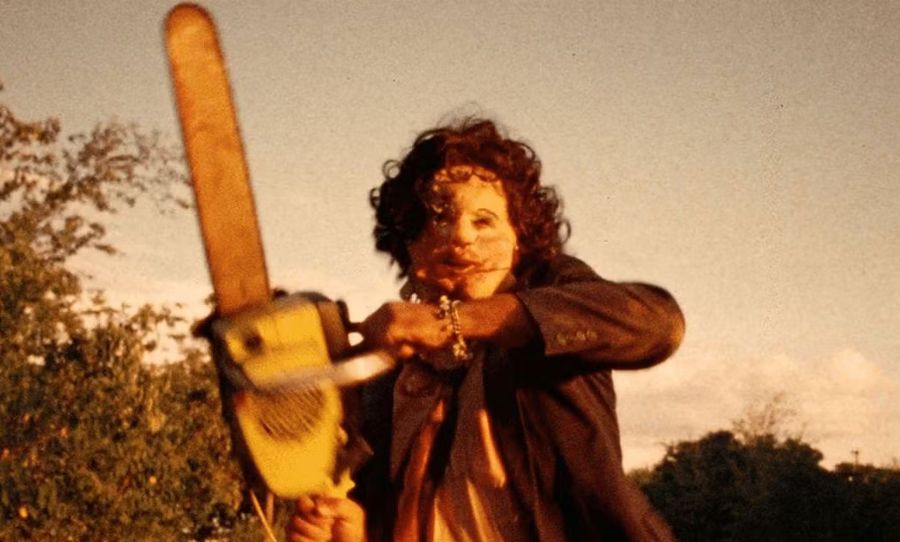As anticipation grows for the 2025 release of Love and Lemon Trees, the film promises to offer a raw and deeply emotional exploration of grief and personal growth.
Set against the backdrop of a young chef’s career and personal life colliding, the story indirectly follows Carter, a character who returns home to support his grieving family after the death of a loved one.
As he steps away from his culinary dreams, Carter’s journey unfolds through the complex emotions of loss, sacrifice, and the painful realities of moving forward.

Love and Lemon Trees delves into the five stages of grief, examining how different members of a family cope with their sorrow; and find ways to heal.
Carter is just one part of a larger ensemble of characters, each struggling with their own version of loss.
His personal journey is intricately woven into the lives of those around him, with each character offering a unique perspective on how grief can shape the course of one’s life.
The film explores the delicate balance between holding on to the past and finding the strength to move forward, highlighting the interconnectedness of human experiences and the importance of support within a community.
The ensemble cast brings together a diverse range of emotions, creating a nuanced portrayal of grief that goes beyond individual experiences to show how it affects relationships and personal identity. With its deep focus on emotional realism and the power of human connection.
The film, written and directed by Savanna Crasto, explores the complexity of grief, highlighting how it can isolate individuals even as they attempt to support one another.
It not only examines the sorrow of loss but also the overwhelming feeling of being left behind as life continues to move forward.
Carter’s struggle to balance his personal aspirations and family responsibilities gives the film an emotional depth, with Munn’s performance at its heart.
FRANCIS ELAME: Congratulations on your reprising role as Carter in Love and Lemon Trees! How did you prepare for this character, and which aspects of Carter did you find most compelling?
JAMES MUNN: Thank you! Preparing for Carter was a deeply personal journey. I always try to find a part of myself in every character I play, and with Carter, it was about navigating the complexities of grief and the struggle between personal aspirations and family responsibilities. Carter’s emotional journey resonated with me, especially his internal conflict of wanting to pursue his dreams while also feeling the weight of obligation to his family. His vulnerability and desire for connection made him a character I could really empathise with, which made the preparation process both challenging and rewarding.
ELAME: Love and Lemon Trees is a drama that delves into complex relationships. Was there a particular scene that stood out to you during filming? What made it memorable?
MUNN: There was a scene toward the end of the film that really stood out for me. It’s a moment where Carter has to confront some difficult truths about himself and his relationships with those around him. Filming that scene was particularly powerful because it felt like a culmination of everything Carter had been through. The raw emotion required really made me reflect on my own experiences, and I think that personal connection translated into something authentic on screen. It was a challenging scene, but one that I’m really proud of.
ELAME: Without revealing too much, how did the central themes of Love and Lemon Trees influence your portrayal of Carter and his interactions with other characters?
MUNN: The central themes of the film to me —grief, personal growth, and the impact of our choices—played a huge role in shaping my portrayal of Carter. His journey is about reconciling his past, and with his present, and that struggle is reflected in his relationships with others. The way he interacts with his family, for example, is driven by his desire to protect them while also trying to figure out who he is outside of those obligations.
ELAME: The cast includes both actors from the first film and newcomers to this world. How did this blend of experience contribute to the storytelling process?
MUNN: It was a really special dynamic on set. The mix of actors who were familiar with their characters, and newcomers who were equally as deep in the discovery process – created a rich, collaborative environment. Having a larger cast just gives you a larger opportunity to watch them work, absorb their approaches, and seeing how they handle the complexities of their characters. At the same time, having fresh faces on set brought an exciting energy to the process. It kept things dynamic and allowed for creative spontaneity, which, in turn, made the storytelling feel more alive and organic to me.
ELAME: Working with directors Savanna Crasto and Pierce Gordon, how did their unique styles influence your portrayal of Carter and the overall narrative?
MUNN: Both Savanna and Pierce have such a unique, insightful approach to directing. Pierce has this incredible ability to create a safe space for actors, allowing us to explore the emotional depths of our characters without feeling restricted. His guidance was essential for bringing Carter’s vulnerability to the forefront. Savanna, on the other hand, has a more hands-off style, which really allowed me to make Carter my own. Both directors pushed me in different ways, and I’m grateful for how they helped shape my performance into the overall tone of the film.
ELAME: Looking ahead, are there any genres or roles you’re particularly interested in exploring in the future?
MUNN: I’m definitely drawn to roles that explore complex emotional journeys, similar to what I’ve done in Chasing Lemons and Love and Lemon Trees. I think there’s a lot of room for growth in roles that delve into the complexities of human relationships and personal transformation. I’d love to explore more dramatic and emotionally layered roles, but I’m also interested in branching out into different genres—maybe something a bit more action-packed or even a dark comedy. I’m always open to challenges and new creative directions.
ELAME: What valuable lesson have you learned in your career that you continue to carry with you?
MUNN: One of the biggest lessons I’ve learned is the importance of staying grounded in the work. It’s easy to get distracted by external pressures—whether it’s the expectations of others or the growing attention on social media. But what matters most is the craft. Staying true to the character and the story, and constantly pushing myself to grow as an actor, has been key. That focus and dedication to the art is something I carry with me every day.
ELAME: If you were a book, which one would you be and why?
MUNN: I’d probably turn the script of A Knight’s Tale into a book… they just did it with a musical! It’s got this perfect mix of heart, humour, and unexpected moments of triumph. It’s one of those stories that doesn’t take itself too seriously but still manages to sneak in some really meaningful stuff. Plus, it’s got that underdog vibe—where everything seems a little out of place, but it works anyway. I like to think that I’d be the kind of book that surprises you, makes you laugh, and reminds you that even when things are tough, there’s always room for a good time.
View this post on Instagram
Munn’s role in this film adds to his growing body of work, which includes his breakout performance in Troppo (2024) as Bart McQuillan and his earlier portrayal of Carter Ashmore in Chasing Lemons (2023). His career continues to progress, with Love and Lemon Trees further showcasing his talent. He is also set to appear in the CW series Good Cop Bad Cop (2025) and the thrilling film Dangerous Animals (2025), where he will be featured alongside Dune: Prophecy’s Josh Hueston.
In a recent interview, Munn shared his thoughts on his increasing social media following, acknowledging that while it has helped with his acting career, he tries not to focus on it too much. His easy-going response reflects his dedication to his craft, despite the attention that comes with online presence.
Munn spoke about graduating from WAAPA (Western Australian Academy of Performing Arts) and how it was a transformative experience, one that solidified his passion for acting and deepened his understanding of the craft. Munn claims “The biggest takeaway was the unique opportunity to act for 70 hours a week—something you can’t replicate in any other environment. The rigorous schedule pushed me to my limits, allowing me to explore and refine my skills in ways I never thought possible. It was an intense, immersive training that not only developed my technique but also instilled a deeper sense of discipline, focus, and resilience that will stay with me throughout my career”
In Love and Lemon Trees, Munn’s ability to balance the joy of aspiration with the weight of grief makes Carter a character that audiences will both empathize with and admire. The film, with its delicate handling of loss, is sure to be a deeply emotional experience.
As Munn’s career continues to rise, it’s clear that he is not just a versatile actor but one whose emotional truth shines through in every role he takes on. Love and Lemon Trees will undoubtedly mark another milestone in his journey, proving once again that, in Munn’s words, “Every character is a version of myself.”



